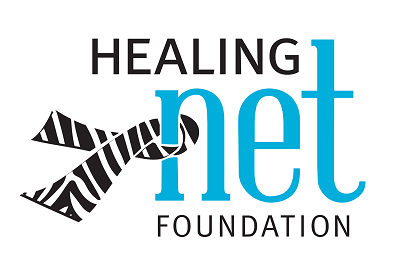CARCINOID HEART DISEASE SUMMARY
Carcinoid heart disease (CaHD) is a consequence of the effects of excess hormone production (usually from liver metastases of small intestinal NET). Serotonin in high concentrations entering the heart from the liver causes fibrosis, particularly in the tricuspid and pulmonic valves, resulting in right-sided heart failure. Fifty to seventy percent of patients with carcinoid syndrome (CS) will develop CaHD in time. Therefore, every patient with CS should have an echocardiogram performed by an experienced echocardiographer. Progressive CaHD has a high morbidity and should be considered life-threatening requiring surgical valve replacement. The most appropriate sequencing of surgical procedures should be considered carefully within a multidisciplinary team.
CARCINOID HEART DISEASE DETAIL
Definition
Carcinoid Heart Disease (CaHD), a consequence of the effects of serotonin secreted in excess by a neuroendocrine tumor, is characterized by the scarring effects caused by the stimulation of fibroblast proliferation when serotonin stimulates serotonin surface receptors on the cardiac endocardium. The resultant plaque formation typically affects the inner lining of the inferior vena cava, the right atrium, right ventricle, the two right heart valves (tricuspid and pulmonic), and the pulmonary arteries. CaHD typically is the result of a functional midgut neuroendocrine tumor in the terminal ilium having metastasized to the liver where the tumor releases serotonin in high concentration into the inferior vena cava. The serotonin is carried predominantly in platelets and affects receptors until it reaches the lung where, by unclear mechanisms, it is deactivated before passing to the left heart. If there is evidence of fibrosis of left heart valves, one must search for one or more of 3 main causes: a patent foramen ovale, bronchial carcinoid tumor, or an extremely high serotonin level.
Diagnosis/Who should be tested50-70% of patients with the Carcinoid Syndrome (CS) will develop CaHD during the course of their disease. Therefore, every CS patient merits a screening exam with the goal of detecting a murmur and/or signs and symptoms of right heart failure: edema, ascites, a congested liver, pleural effusion and jugular venous distension. In addition, all CS patients should have an echocardiogram performed by an echocardiographer experienced in the assessment of the right heart valves as well as the characteristic changes of the Carcinoid valvulopathy: valve leaflet thickening, retraction and immobility, and valvular stenosis and insufficiency. A patent foramen ovale should be excluded, and the pressure in the inferior vena cava estimated, at that time.
TreatmentThe treatment of CaHD initially involves medications to control the effects of right heart failure with the goal of diuresing the patient to their dry weight. This is done in preparation for heart valve surgery (replacement of the deformed valves). Often, surgical repair of the heart must precede any tumor-reductive procedure in the abdomen because, if the pressure in the inferior vena cava is elevated, the risk of bleeding during abdominal surgery is heightened. If it is determined that the severity of valve damage is great enough to have caused right heart failure, valve surgery should be undertaken; usually, this will entail replacement of the tricuspid and pulmonic valves, a patch enlargement of the right ventricular outflow tract (to accommodate a larger pulmonic valve) and closure of a patent foramen ovale if one exists.
Generally, a team of NET specialists (comprised of a NET oncologist, a surgical oncologist, a cardiologist and a cardiac surgeon) meet to discuss the pathoanatomy, determine the most appropriate sequencing of procedures, and to select the most appropriate type of prosthetic valve(s) for the patient. Since there is a high frequency of recurrence of the Carcinoid valvulopathy on newly-implanted bioprosthetic (tissue) valves when the serotonin level remains elevated, a decision must be made based upon the likelihood that serotonin can be rapidly reduced following heart valve surgery. Unfortunately, two retrospective studies of the issue of recurrent valvulopathy on newly-implanted bioprosthetic valves revealed that, prior to 2017, the incidence of recurrent fibrosis of these tissue valves is nearly 50% within the first 2 years because of the failure of nearly all patients to achieve a normal serotonin level.
The single ray of hope came early in 2017 with the FDA approval of telotristat ethyl (Xermelo), the first safe oral medication which predictably reduces the production of serotonin in neuroendocrine tumor cells by blocking tryptophan hydroxylase, the enzyme in the first step in the conversion of tryptophan to serotonin. Telotristat ethyl reduces serotonin rapidly, often to normal levels, and, in the majority of patients, its effects are rapidly apparent and persist for the duration of therapy. Telotristat ethyl is FDA approved for the treatment of diarrhea in patients suboptimally treated with a somatostatin analog alone. It has not yet received approval for the sole purpose of reducing serotonin.
On the HorizonOne 10 year retrospective literature review of the relationship between serotonin and mortality highlights the linear correlation of the serotonin surrogate, urinary 5HIAA, and mortality. And studies have been proposed to document the effect of telotristat ethyl upon mortality and related events. In the majority of CS patients, the serotonin reduction achieved with the addition of telotristat ethyl is greater in magnitude than the combined effects of all other currently available therapeutic modalities.



